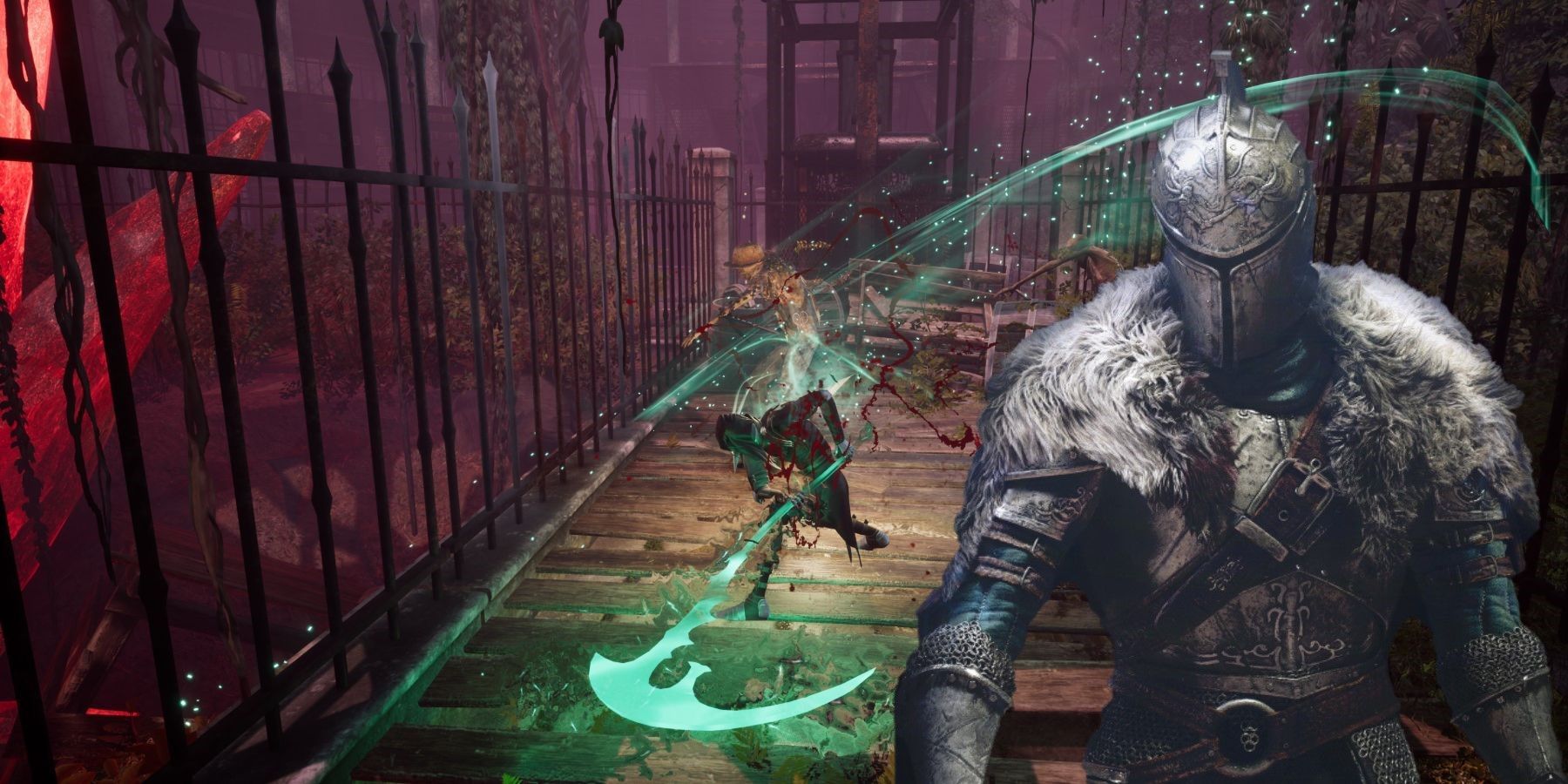It has been seven months since the announcement of OverBorder Studio's Thymesia, a game that was immediately labeled as a Souls-like with stylish combat; like Bloodborne on PC. These definitions can help when it comes to categorizing games, but are not necessarily good for games themselves because of how much more they might have to offer beyond being a "clone" of another title. Such is the case of Thymesia with Bloodborne and, more specifically, with the Dark Souls series as a whole that spawned the Souls-like genre.
Comparisons are not always bad, and Thymesia is not designed to be a complete revolution of systems introduced by other classic Souls-likes. In fact, Dark Souls had a huge impact on OverBorder Studio's work. That's why Thymesia takes those similarities and transforms them into something unique, changing the formula enough to ask the question of what it means to be a Souls-like. Game Rant spoke to OverBorder Studio about what makes Thymesia stand out from the crowd of similar titles that came after the enormous success of Dark Souls.
How Thymesia Differs From Dark Souls and Other Souls-likes
One of OverBorder Studio's biggest challenges while working on Thymesia was dictated by the developer choosing not to include a stamina bar. Resource micromanagement has always been one of the factors that made Dark Souls an inherently difficult game, since it adds an extra layer that players have to keep an eye out for. However, Thymesia not featuring stamina at all is a small evolution that doesn't take away from the difficulty of the game, as it instead provides players with more agency in their approach to combat.
"You can approach each enemy differently and wait to react to their attacks, or you can attack first, forcing them to counterattack and opening them up for a parry. Corvus’ build can be customized in order to suit different playstyles or to prepare for the enemies and bosses the player encounters."
Still, there are some special attacks that players can't stop as they would normally, instead requiring them to either dodge or spend a feather attack to interrupt them. There is also no classic spellcasting in Thymesia, as the resource that's commonly addressed as mana is replaced by plague energy, which is used to manifest plague weapons. Regenerating this resource is not something that happens passively, rather players can harvest plague energy when they damage their opponents - though potions do exist and some talents change the way resources or actions work.
"There are also different talents, for example, you can chain together longer combos to deal more damage, regenerate feathers faster, use ranged projectiles that can interrupt enemies and keep them at bay, or even replace your parry with a defense buff so you don't need to worry about timing."
Speaking of plague energy and plague weapons, these magical tools of destruction are something players unlock temporarily when defeating specific enemies, but they can also be permanently unlocked, according to OverBorder. This happens via checkpoints, which are likely going to function in a way similar to Dark Souls' bonfires; much like how Thymesia has a progression system based on memory shards, similar to how Souls work in FromSoftware's games. Regardless, these manifestations are what allows Thymesia players to "change weapons," considering the game doesn't come with a variety of inherent weapons to choose from.
Ultimately, Thymesia is not designed to be as challenging as some classic Souls-likes, and OverBorder Studio wanted players to be able to finish the entire game with a naked, level one character. This goes to show how impactful Dark Souls and other Souls-likes were during development, but also how the games across this genre can differ from one another.
Thymesia releases December 7 on PC.

